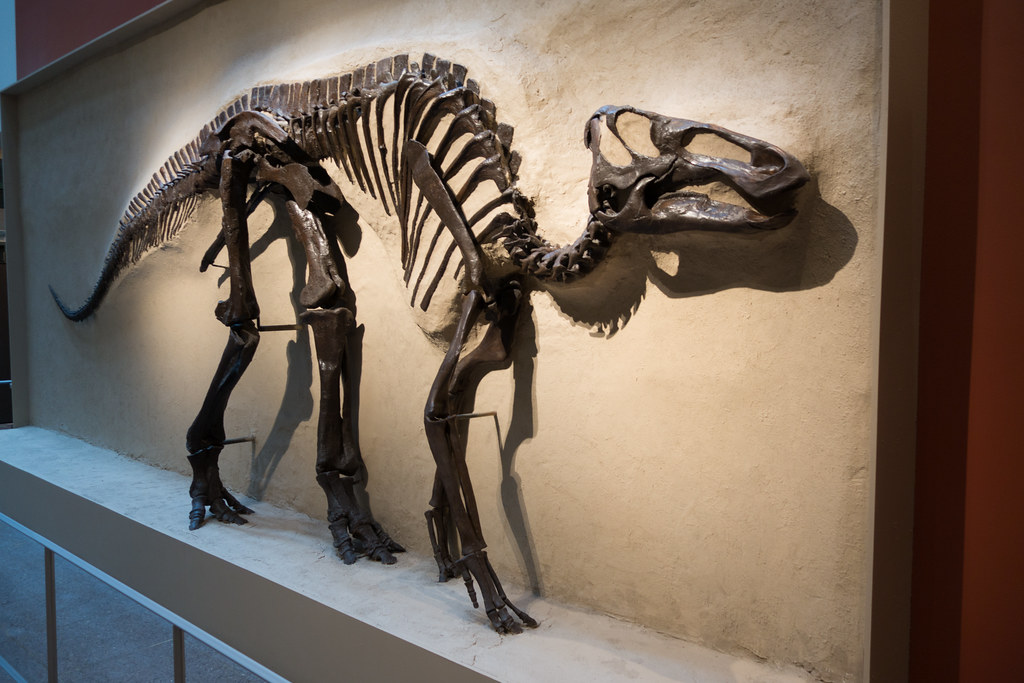STEM
Earth Science
Geology
Paleontology
Society
Edward Hessler
Jeremy P. Jacobs reported in E&E News, via Science, July 10 2019 on a lawsuit involving fossils, an angle I'd never considered.
Later this year the Montana Supreme Court will take up a case to decide whether dinosaur fossils are minerals. You may wonder how this became a legal question.
It has to do with rights, surface and mineral. If you own the land you own what is on its surface. Mineral rights, on the other hand, can be sold and managed separately. A property owner may own a piece of land but not necessarily rights to what's underground known as minerals whether they are gas, liquid or solids.
The case centers around a famous find, the so-called "Dueling Dinosaurs." One was a meat-eater; the other a plant eater. They appear to have been in combat and died together. Few people have been allowed to see the fossils since their recovery. They have been offered on sale.
Land deals are deeply involved in this lawsuit. Renters purchased the surface rights but not the mineral rights. Soon after the surface owners found the two fossils and the owners of the mineral rights claimed the fossils. This led to a lawsuit and courts have made two decisions. A lower court sided with surface-rights owners while a higher court sided with the mineral-rights owner. On top of this, the Montana State Legislature "enacted a law...that states 'fossils are not minerals and that fossils belong to the surface estate,'" but "the law...does not apply to existing disputes.
So, why is this important? According to the report, if fossils are declared minerals "it would make searching for fossils extremely complicated, said David Polly, a former president of the Society of Vertebrate Paleontology, based in Bethesda, Maryland, paleontologists would need to navigate both surface ownership--to get to the dig location of a parcel. Often, mineral rights are hard to find and frequently change hands between hands between large corporations. More alarmingly, he said, it could raise questions about the ownership of fossils currently in museums."
The original article, which I recommend you read, traces the court cases and the details of the decisions. Jacobs includes a few sentences from the circuit court opinion deciding in favor of he mineral rights owners, part of "a colorful opinion", as he puts it. I think you will agree.

 CGEE Student Voice
CGEE Student Voice
No comments:
Post a Comment